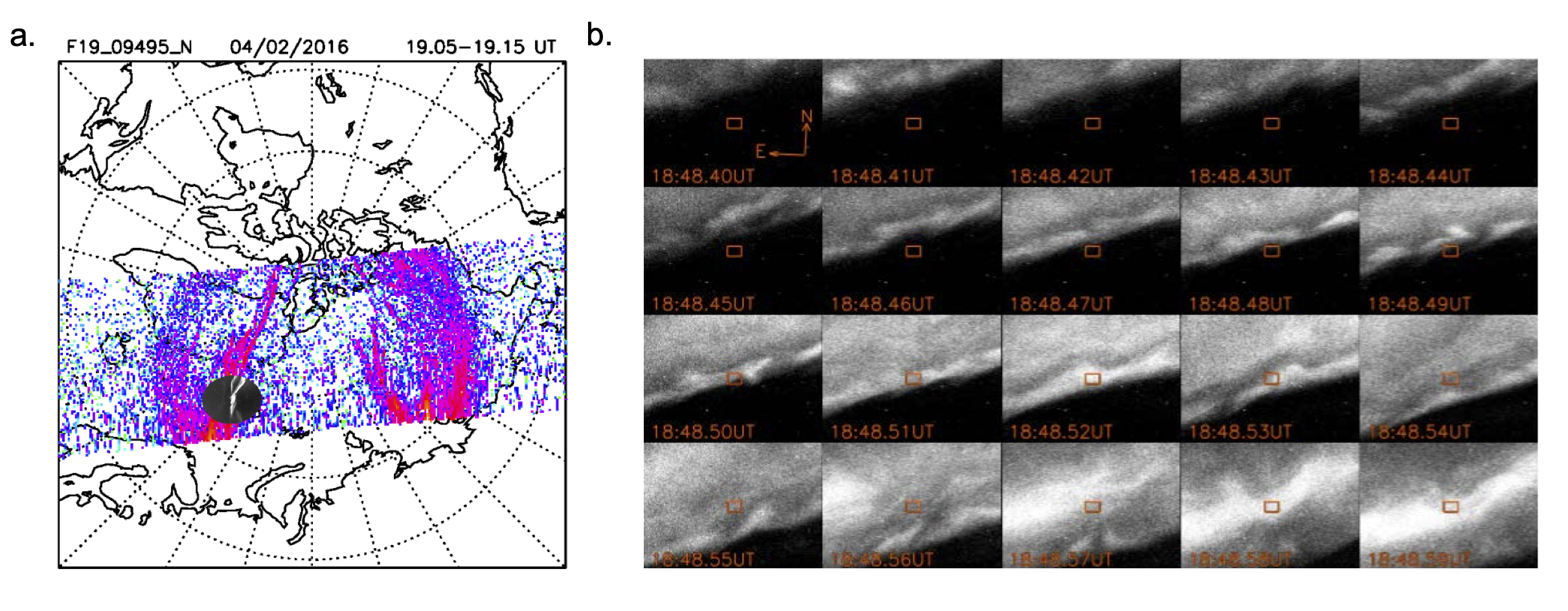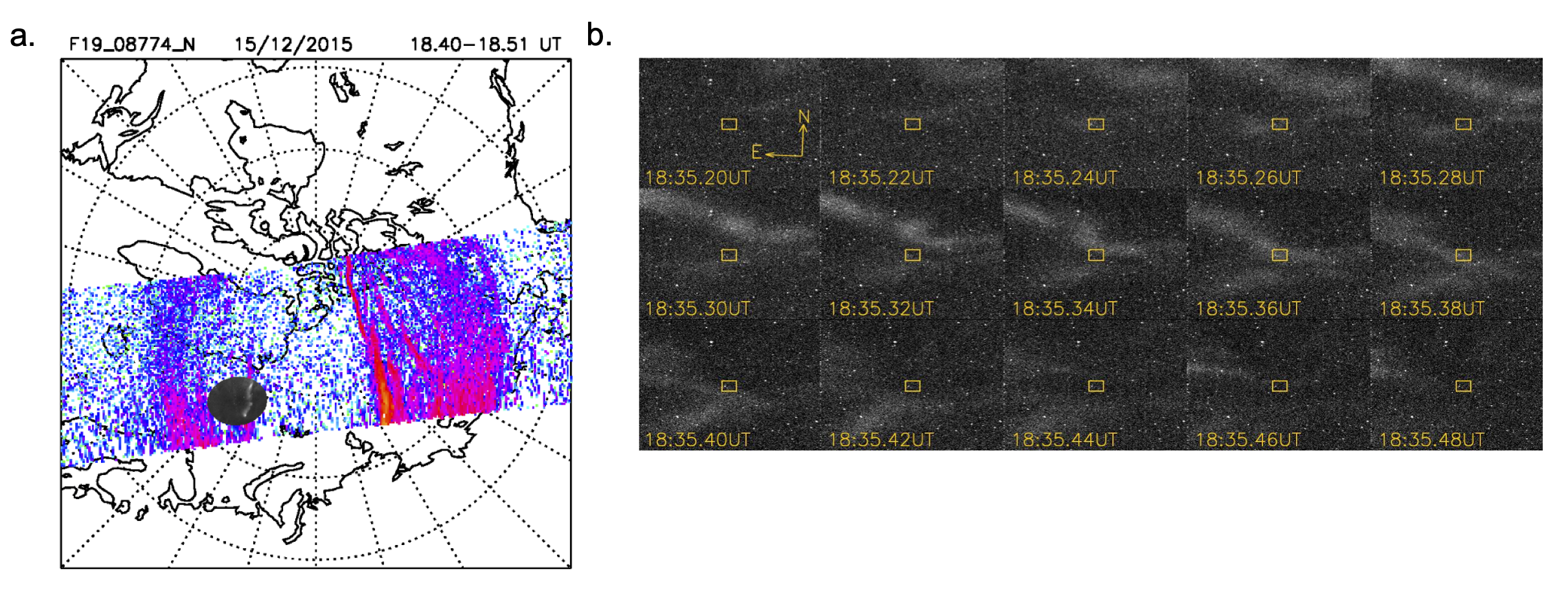MIST
Magnetosphere, Ionosphere and Solar-Terrestrial
Multi‐scale observation of two polar cap arcs occurring on different magnetic field topologies
By Jade Reidy (University of Southampton & British Antarctic Survey)
Polar cap arcs (auroral arcs occurring at high latitudes) have been under debate since they were first discovered over 100 years ago. Although reports present conflicting evidence of the arcs forming on open field lines whilst others argue they are formed on closed field lines, recent work suggests that more than one polar cap arc formation mechanism potentially exists (e.g. Reidy et al., 2017, 2018).
Two events containing polar cap arcs occurring over Svalbard have been investigated using multiscale ground‐based and spacecraft instrumentation. Figures 1a and 2a show UV images from each event from the Special Sensor Ultra-Violet Imager (SSUSI) on board low-orbiting spacecraft (DMSP). These auroral images have been projected onto magnetic local time grids with noon at the top and dawn to the right. On both SSUSI images, we have projected an all sky camera image from Svalbard; this demonstrates how the ground-based and global-scale observations are related and allowed us to find an interval where the arc passes through the small field of view of the Auroral Structure and Kinetics (ASK) instrument (shown in Figures 1b and 2b for each event). Key features of each event are summarised below:
Event 1 – A Closed Event
- Electron and ion precipitation observed in both hemispheres.
- Highly dynamic small scale structure is observed (Figure 1b), similar to features in the main auroral oval.

Figure 1: Observations of the polar cap arc occurring on 04 February 2016. (a) SSUSI and the all sky imager observations. (b) ASK instrument observations of the auroral arc.
Event 2 – An Open Event
- An electron-only particle signature.
- Very dim auroral features that are consistent with the low plasma density of the magnetotail lobes (Figure 2b).

Figure 2: Observations of the polar cap arc occurring on 15 December 2015, in the same format as Figure 1.
In the full paper we investigate the different formation mechanisms further by comparing to observations from different instrumentation (including a ground-based spectrograph, located on Svalbard, and the Super Dual Auroral Radar Network). We conclude both events to be consistent with different and distinct formation mechanisms and that this is reflected in the small scale observations.
Please see the paper for full details:
Reidy, J. A., Fear, R. C., Whiter, D. K., Lanchester, B. S., Kavanagh, A. J., Price, D. J., et al. (2020). Multi‐scale observation of two polar cap arcs occurring on different magnetic field topologies. Journal of Geophysical Research: Space Physics, 125, e2019JA027611. https://doi.org/10.1029/2019JA027611